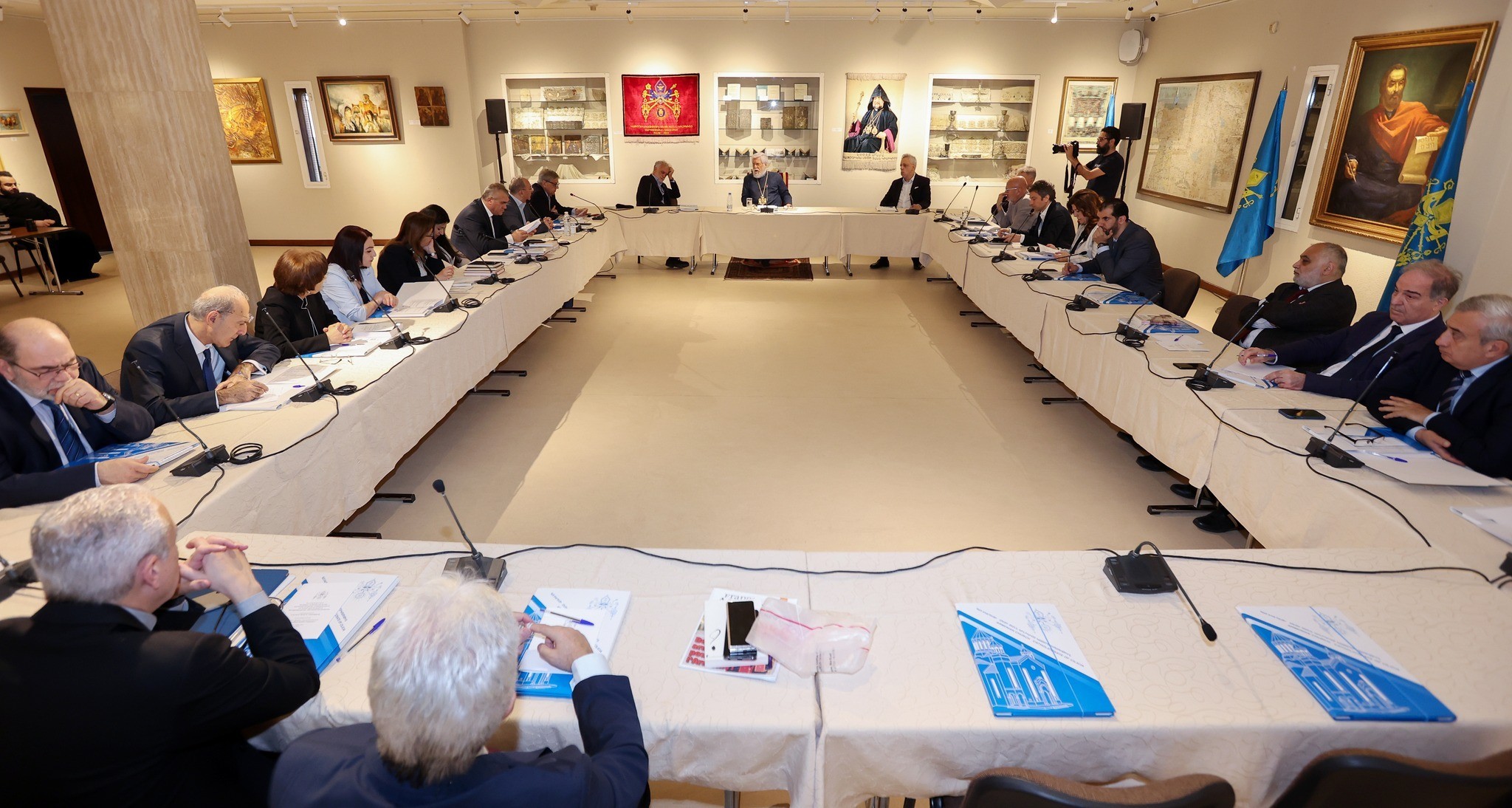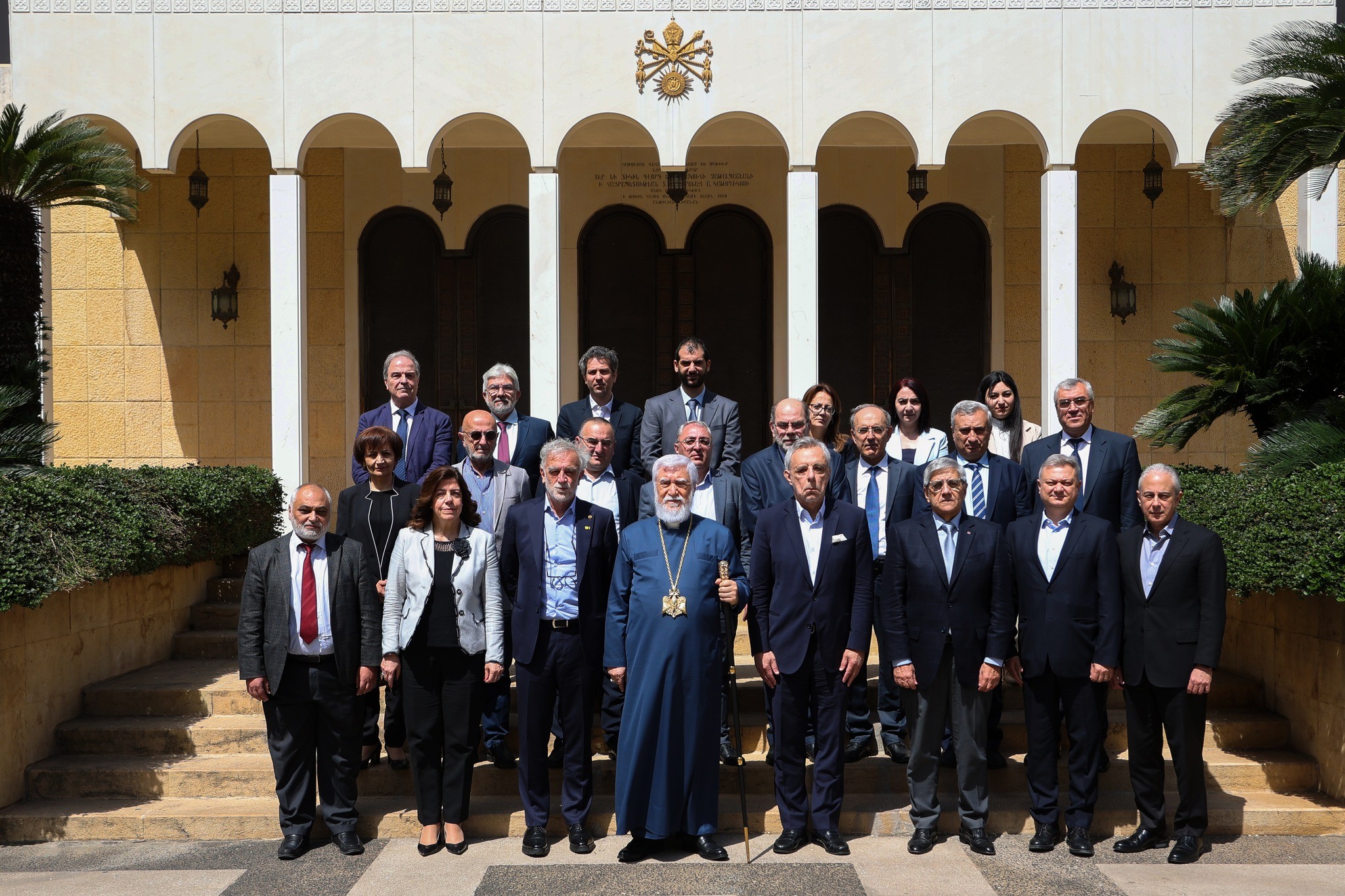
“The Page Concerning Artsakh is Not Yet Closed”: Catholicos Aram I Leads Conference on Reinstating the Indigenous Rights of Artsakh People: Confronting Azerbaijan’s Genocidal Policy


armenianorthodoxchurch.org
OCP News Service and armenianorthodoxchurch.org – 21/04/2024
Antelias – Lebanon: The conference entitled “Reinstating the Indigenous Rights of Artsakh People: Confronting Azerbaijan’s Genocidal Policy”, presided by His Holiness Catholicos Aram I, was organized by the ‘Cilicia Analytical Platform’, convened on Saturday, April 20th, 2024, at the Cilicia Museum Hall. The participants included Dr. Louis Moreno Ocampo, founder and First Prosecutor of the International Criminal Court (ICC), Mr. Vartan Osganian, former foreign Minister of the Republic of Armenia, as well as historians, human rights experts and political scientists from Armenia, Artsakh and the Armenian Diaspora.
His Holiness Aram I opened the meeting with a special greeting addressed to the founder and First Prosecutor Dr. Luis Moreno Ocampo. He thanked Dr. Moreno Ocampo for his presence and expressed his esteemed regard for his commitment to Justice. He said, “justice is Grace given by God and the vocation of the Church”, and the Armenian Church abides by it. He then continued to say that the purpose of the meeting was to study all possibilities that lead to the restoration of the rights of the Armenian population of Artsakh, because we have not closed the page, he emphasized.
His Holiness then referred to the two reports on the situation in Artsakh prepared by Dr. Ocampo and asked for the reasons why the international community remained indifferent the to the Genocide in Artsakh; what were the possibilities at the International Court of Justice to judge Aliev for his genocidal acts; the rights of Armenians to return to their homeland, while Aliev invites them back as citizens of Azerbaijan. His Holiness described his questions as ‘struggle for survival issues’, with legal and political implications. His Holiness then invited Dr. Ocampo to lecture on the topic: “Azerbaijan’s committed genocide and the right of the Armenian population of Artsakh to return to their homeland.”
The Vice President of Socialist International Council, Mr. Mario Nalbandian introduced Dr. Ocampo, and his contribution to the Armenian cause. In his introduction, Dr. Moreno Ocampo emphasized importance and the need to insist on Genocide, especially in view of the latest events. Because, without the affirmation, there will be no compensation, and the right to return will become impossible. Addressing the issue of indifference of the world community, he explained that the reason was to escape from taking responsibility as governments, and safeguard their benefits from globalization. He recommended to pressure political leaders who cooperate with Aliev. Ocampo also explained some sensitive aspects of international law. For example, to call Aliev’s action genocidal will require a special trial. Hence, it was necessary to present the same issue differently.
At the end of Ocampo’s presentation, former foreign minister of Armenia, Vartan Osganian took the floor and stated that the struggle against genocide has been at the forefront of the struggle of our people. However, at every stage of the pursuit, new challenges have emerged. Consequently, he feared that as time went by, the struggle for the recognition and the demand for compensation may dwindle. Osganian continued and spoke of the contribution of Dr. Ocampo to the issue of the recognition of the genocide and compensation with appreciation. He then asked: What would be our correct legal and political approach, considering the important role of the government of Armenia on this issue?
Discussion and deep analysis followed the presentations. The participants asked questions and analyzed the political reasons for the breach of human rights in Artsakh. They also discussed the role and responsibility of a third party in relation to self-determination; the implicit motives, and the presentation of the case to the International Criminal Court; the role of Armenian Diaspora; the danger of emotional approach to the issue; the role of Russian peace keepers, and the impact of public opinion, and other concerns.
Source:
OCP News Service
